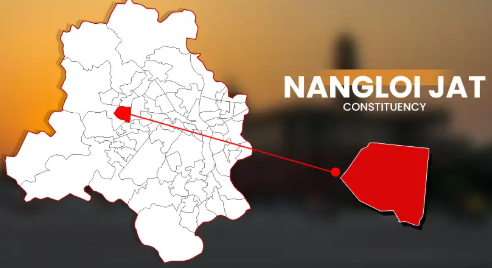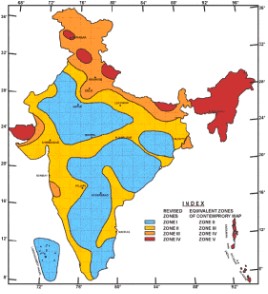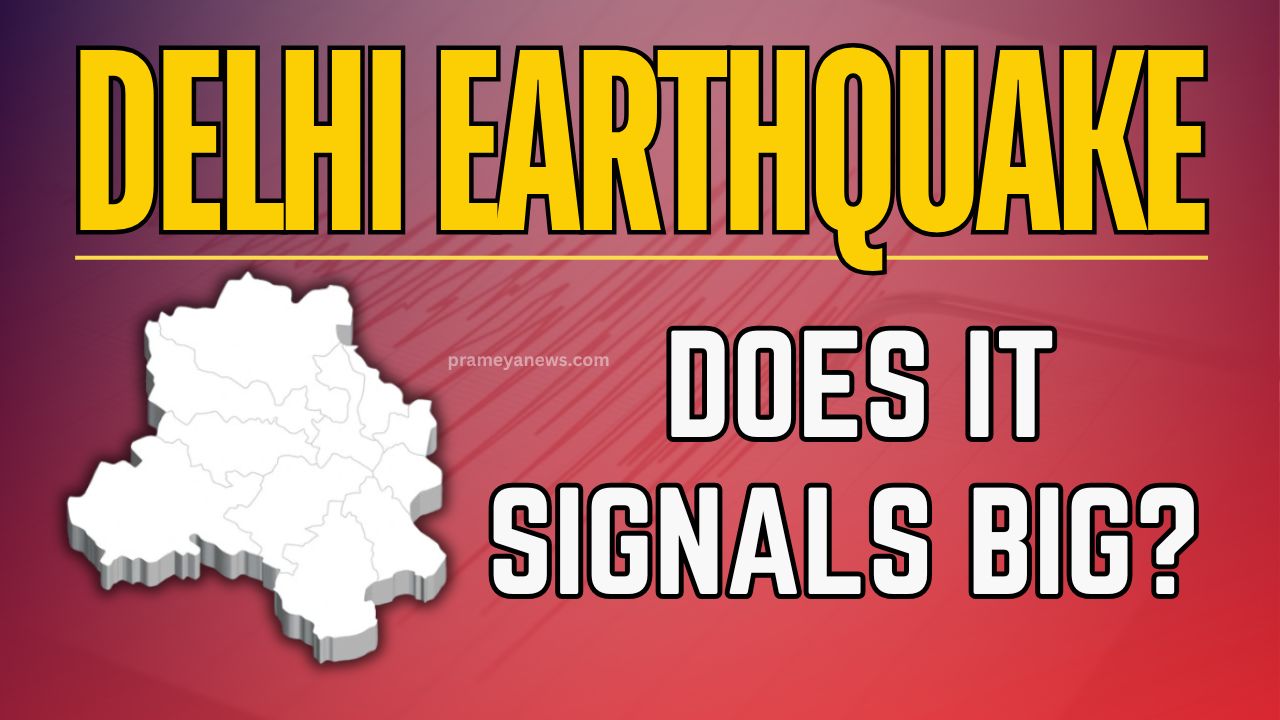Bhubaneswar: The national capital Monday morning was jolted in a big way.
An earthquake with its origin point lying 5km to southeast of Nangloi Jat in Delhi rocked the Capital at around 5:36 am with an intensity measuring 4.0 - 4.2 in the Richter scale.

Despite of it being a quake of magnitude around 4, the Delhites felt the jolt a hard way. As per seismology parameters, magnitude of 4.0 to 4.9 is regarded as light quake, where the shaking will be light.
See the image below.

But despite being a light earthquake, how come it jolted the Delhites a hard way.
MAGNITUDE OF QUAKE AND SHAKING OF GROUND LINK
The magnitude of earthquake measured on Richter scale measures the strength of the quake. Here the magnitude of 4 qualifies it as a light earthquake.
But having said that it is pertinent to mention that, though, the shaking of ground depends on earthquake’s intensity, there are two other factors, which may result in greater shaking of ground with even a lesser intensity of earth quake. The two factors are:
- Depth of quake
- Kind of soil of the origin point
As per US Geological Survey, rocky surfaces shake the least. If the soil is majorly made of sand and gravel, it will shake two times more than the intensity; whereas if the soil is made of mud and landfill, it will shake 5-times greater than the intensity.
DELHI QUAKE
As per the data shared by National Seismology centre and USGS (US Geological Survey), following are the facts about the quake that struck Delhi today.
National Seismology Centre
Location: 28.59, 77.16
Magnitude – 4.0
Depth – 5km
US GEOLOGICAL SURVEY
Time: 2025-02-17 05:36:52
Location: 28.643°N 77.107°E
Magnitude - 4.2
Depth – 10km
The above details show the depth at which the quake originated has been very close to the surface.
DELHI SOIL
As per the Messere Radio Foundation Limited and Hazard & Co, Mumbai, the Delhi soils are mostly light with subordinate amount of medium texture soil – which is made of loam silty loam.
The above shows that Delhi soils are loose structured. The density is weak.
WHY DELHI JOLTED HARD?
The above details show why the Delhi quake saw a greater shaking of ground than the intensity measured.
Since the quake was closely located to surface, and the soil is weakly structured, even a 4 magnitude earthquake resulted into greater ground shaking.
WILL DELHI SEE AFTERSHOCKS?
Prime Minister Narendra Modi in his X post asked Delhi residents to stay calm and take safety measures to stay safe from aftershocks.
Though larger earthquakes usually have aftershocks, the possibility of aftershocks in Delhi was very much there, since this has been a very shallow quake (depth 5-10km only).
Despite a light intensity quake, PM Modi warned the Delh residents for this reason.
But aftershocks happen within 3 hours of a bigger quake.
DELHI PRONE TO EARTHQAUKES: WAS THERE ANY SIGN?
As per Delhi Disaster management Authority (DDA), two major lineaments namely Delhi-Haridwar ridge and Delhi-Moradabad faults pass through the national capital territory.
It says, both having the potential of generating earthquakes of magnitude up to VIII.
It added further that normal depth of 30 km may be assumed for these earthquakes.
So, national capital is prone to stronger and shallow quakes, which are highly damaging in nature.
The sign of earthquake coming to Delhi can only be assessed from how frequently tremors hit Uttarakhand. Take a look below

JANUARY 2025 EARTH QUAKE REPORT
As per National Seismology Centre report, the country had recorded a total of 30 earthquakes in the month of January 2025. Of which,
- Manipur = 8
- Uttarakhand = 7
- Out of 30 earthquakes,
- 14 earthquakes reported in North
- 11 in North-East region
As Uttarakhand has been active and had recorded second highest number of earthquakes in Jan 2025, Delhi may also see jolts at anytime.
WILL DELHI/UTTARAKHAND SEE LARGER EARTHQUAKE?
What is in store for Delhi/Uttarakhand after so many quakes were recorded last month?
Take a look at the study published by Institute of Electrical and Electronic Engineers (IEEE). The study has studied the Delhi – Haridwar Ridge and had said the following:
- Ridges and fractures along the interplate boundaries influence arc morphology and earthquake rupture propagation.
- The space-based interferometric synthetic aperture radar (InSAR) approach was used to investigate tectonic deformation along the Delhi-Haridwar Ridge (DHR) in the Indo-Gangetic alluvial plain and below the Himalayan arc.
- The deformation rates are derived from InSAR data using 390 interferograms from 2017 to 2021.
- The InSAR line of sight velocity reveals prominent subsidence along the DHR, whereas the Himalayan arc surrounding DHR shows upliftment.
- In addition, continuous microseismicity and persistent subsidence along the DHR indicate aseismic creeping in this area
- This indicates an unfavorable condition for large rupture formation and propagation in the future.



















































